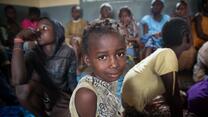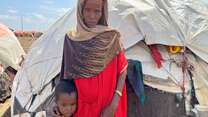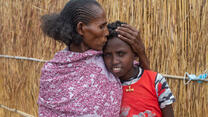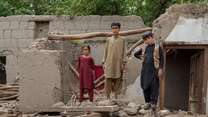In the more than 85 years since the International Rescue Commitee's founding, the world has changed and so have the needs of the people we serve. Today a staggering 82.4 million people are displaced as result of conflict, persecution, and crisis. People are displaced for longer than ever, with most refugees displaced for over a decade. Often this displacement is the result of conflicts that now last 20 years on average. These crises are further exacerbated by the climate crisis, which is projected to displace as many as 150 million people by 2050. And yet for displaced populations, the pathways to refuge are dwindling as governments around the world create greater barriers to asylum and resettle fewer than 1% of those in need.
The global COVID-19 pandemic has magnified the needs of people and communities living in crisis. Movement restrictions further limit opportunities for survival migration. Disrupted food supplies exacerbate malnutrition. Women and girls, trapped in lock-downs with their abusers, experience more violence. Conflict-affected children fall further behind their peers due to school closures. The Covid crisis highlights the urgent need for effective programs and strong advocacy for the rights and needs of people living in crisis.
After 100 years of service, we want the impact of our programs and the influence of our ideas to further empower those caught in crisis to make lasting change in their lives. To achieve our vision, we’re launching Strategy100, a strategic plan that provides a north star for our programs, our research, and our voice. We will deliver it in partnership with the people we serve and the local communities in which we work.
Our goal is to make our programs a model for the highest global standards. We aim to deliver high-quality, client-centered, cost-effective programs—on our own and with local partners. We will combine the best available research with client-driven insights.
This is how we reshape the way the world aids those in need. We want empowerment and lasting change to be the norm not just for the people we serve, but for all those who are caught in crisis—including the climate crisis.



